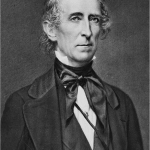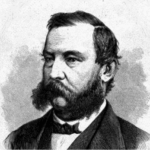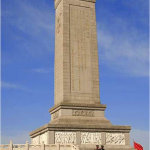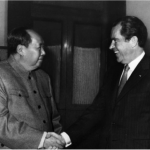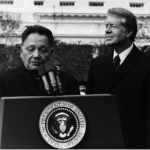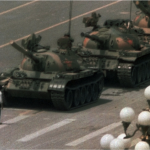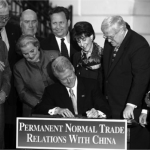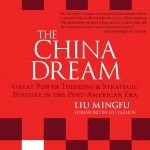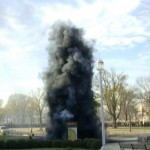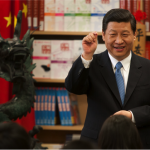The Hundred-Year Marathon
China’s secret strategy to replace America as the global superpower.
Michael Pillsbury
For more than forty years, the United States has played an indispensable role helping the Chinese government build a booming economy, develop its scientific and military capabilities, and take its place on the world stage, in the belief that China’s rise will bring us cooperation, diplomacy, and free trade. But what if the “China Dream” is to replace us, just as America replaced the British Empire, without firing a shot?
Based on interviews with Chinese defectors and newly declassified, previously undisclosed national security documents, The Hundred-Year Marathon reveals China’s secret strategy to supplant the United States as the world’s dominant power, and to do so by 2049, the one-hundredth anniversary of the founding of the People’s Republic. Michael Pillsbury, a fluent Mandarin speaker who has served in senior national security positions in the U.S. government since the days of Richard Nixon and Henry Kissinger, draws on his decades of contact with the “hawks” in China’s military and intelligence agencies and translates their documents, speeches, and books to show how the teachings of traditional Chinese statecraft underpin their actions. He offers an inside look at how the Chinese really view America and its leaders – as barbarians who will be the architects of their own demise.
Pillsbury also explains how the U.S. government has helped – sometimes unwittingly and sometimes deliberately – to make this “China Dream” come true, and he calls for the United States to implement a new, more competitive strategy toward China as it really is, and not as we might wish it to be. The Hundred-Year Marathon is a wake-up call as we face the greatest national security challenge of the twenty-first century.
EarlyPraise
From theMedia
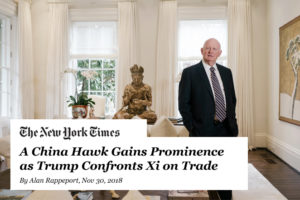
A China Hawk Gains Prominence as Trump Confronts Xi on Trade
THE NEW YORK TIMES
WASHINGTON — Michael Pillsbury had just finished a rib-eye salad at the Cosmos Club on Tuesday when he received a text message from the White House: “The president is trying to reach you. Call back.”
A day later, Mr. Pillsbury huddled in the Oval Office with President Trump and senior members of the White House economic team ahead of a pivotal weekend meeting in Argentina between Mr. Trump and President Xi Jinping of China.
Read the full article here.
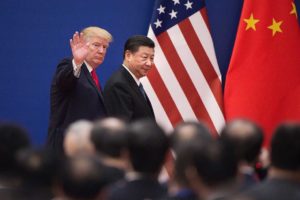
The China hawk who captured Trump’s ‘very, very large brain’
POLITICO
Washington veteran Michael Pillsbury has quietly become a key figure behind Trump’s confrontational China policy, to the dismay of Beijing — and some fellow China experts.
A day before President Donald Trump departed for the G-20 summit in Buenos Aires, several top officials gathered in the Oval Office to strategize about Trump’s highly anticipated meeting there with China’s president.
Read the full article here.
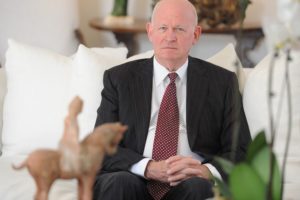
There’s No Cold War With China, Says Trump’s Hawkish Adviser
BLOOMBERG
Michael Pillsbury has rock solid credentials as a China hawk. He’s been called the “leading authority” on America’s trade war opponent by none other than President Donald Trump.
So when Pillsbury says that U.S.-China relations are in fact improving, and will likely get even better after Trump meets his Chinese counterpart Xi Jinping on Saturday, it’s worth paying attention –- especially for investors alarmed by the trade standoff between the world’s biggest economies.
Read the full article here.
100 Years in Short
-
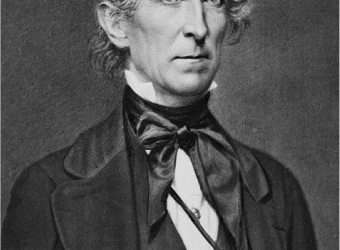
1844: Treaty of Wangxia
“In the latest version of history, the first American villain is President John Tyler. In the Treaty of Wangxia, signed in 1844, Tyler imposed on China what Mao called “the first unequal treaty signed as a result of U.S. aggression against China.” (p. 104)
-
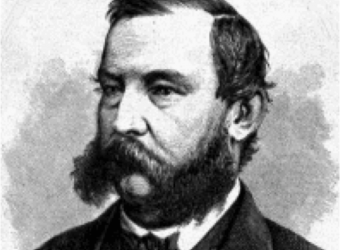
1868: Anson Burlingame Visits China
According to Mei Renyi at the Center for American Studies at Beijing’s Foreign Languages University, the Burlingame Treaty of 1868 forced China ‘to follow Western Cultural norms.’ (p. 105)
-
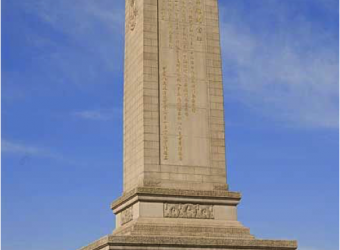
1958: Monument in Tiananmen Square
“What the monument actually signifies is the airing of China’s grievances…a ‘century of humiliation’ at the hands of the Western powers, beginning in 1839…That the obelisk has become a centerpiece for patriotic demonstrations among the Chinese people sends another signal that we have missed: China’s day of justice is coming” (p. 18)
-
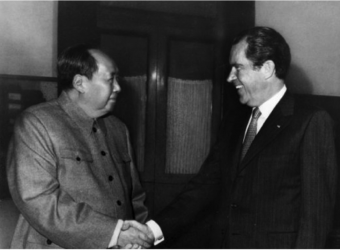
1972: Richard Nixon and Henry Kissinger
“But many have forgotten…that the opening was not actually initiated by Nixon or by Kissinger…Indeed, in many ways, it was not Nixon who went to China, but China that went to Nixon ” (p. 52)
-
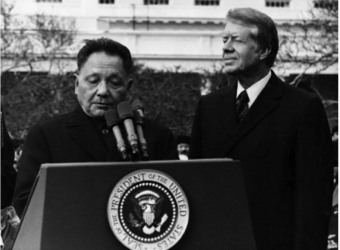
1978: Transfer of scientific knowledge begins
“In July 1978, President Carter sent to China the highest-level delegation of U.S. scientists ever to visit another country…[Frank Press] was surprised when Deng proposed that the United States immediately accept seven hundred Chinese science students, with the larger goal of accepting tens of thousands more…” (p. 70)
-
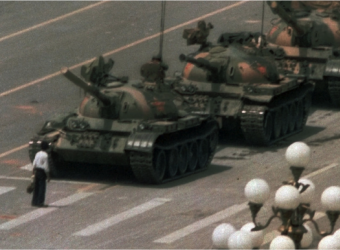
1989: Tiananmen Square massacre
“Hundreds, and perhaps thousands, of unarmed Chinese students died in the streets…Whole building surrounding the square were raked with gunfire. Soldiers kicked and clubbed protesters and tank treads rolled over their legs and backs.” (p. 83)
-

1999: U.S. Accidentally Bombs China Embassy in Belgrade
“The People’s Daily…called the bombing of the Belgrade embassy a ‘barbaric crime’ and referred to ‘NATO led by the United States’ as an ‘arch-criminal’…The long, front page article likened the United States to Nazi Germany in eight specific ways.” (p. 94)
-
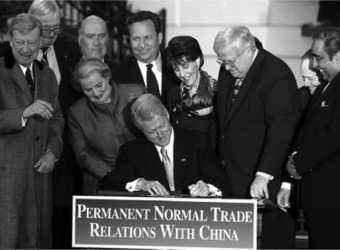
2000: U.S. Normalizes Trade Relations with China
“By the end of 1993, in what the Chinese now refer to as “the Clinton coup,” these allies persuaded the president to relax his anti-China stance…Sanctions were eased, then lifted.” (p. 92)
-
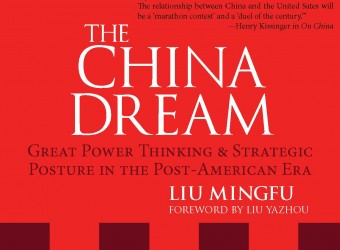
2009: Col. Liu Mingfu publishes The China Dream
“…Xi was referring to a once-obscure book…published in China in 2009 called The China Dream. The book was written by a colonel in the People’s Liberation Army named Liu Mingfu…It was here that I first spotted a specific written reference to ‘the Hundred Year Marathon’ ” (p. 28)
-
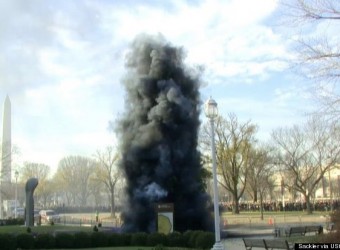
2012: Cai Guo-Qiang explodes Christmas tree on National Mall
“We Americans still don’t see China the way it sees us—a condition that has persisted for decade. Why else would the Smithsonian Institution pay a famous Chinese artist $250,000 to blow up a Christmas tree on the National Mall?” (p. 4)
-
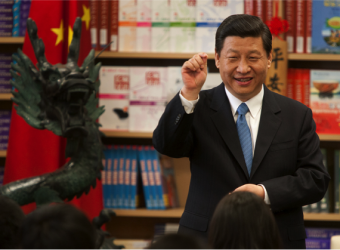
2013: President Xi Assumes Presidency of China
“…the prevailing sentiment among Western observers was that Xi, a rather harmless looking man…was a Gorbachev like reformer…But Xi soon demonstrated that he had a dream of his own—one of a resurgent China that would reclaim its rightful place atop the global hierarchy” (p.17)
SourceFiles
A presentation of China’s hidden agenda grounded in the author’s longtime work at the U.S. Defense Department. Since his recruitment.
Memorandum for the Chairman, NSC Senior Review Group
I herewith transmit a study in response to NSSM 124 and a proposed issues paper for possible use by the Senior Review Group in its consideration of the study. (more…)
PDD/NSC 61 Energy Department Counterintelligence February 1998
In 1995 US officials became concerned that China might have acquired sensitive information from American nuclear weapons laboratories in the mid-1980s. The administration began working to tighten security at our weapons labs and prevent future breaches. (more…)
Presidential Review Memorandum/NSC 24
The President has directed the Policy Review Committee to undertake a three-part review of our policies toward the People’s Republic of China: 1) an analysis of our broad options toward the PRC; 2) an analysis of the ways we can continue to withdraw our troops from Taiwan; and 3) an analysis of the transfer of defense-related technologies to the PRC. (more…)
MeetMICHAEL PILLSBURY

Senior Fellow and Director for Chinese Strategy Michael Pillsbury is a distinguished defense policy adviser, former high-ranking government official, and author of numerous books and reports on China, including most recently The Hundred Year Marathon: China’s Secret Strategy to Replace the United States as a Global Superpower. During the Reagan administration, Pillsbury was Assistant Under Secretary of Defense for Policy Planning and responsible for implementation of the program of covert aid known as the Reagan Doctrine. In 1975-76, while an analyst at the RAND Corporation, Pillsbury published articles in Foreign Policy and International Security recommending that the United States establish intelligence and military ties with China. The proposal, publicly commended by Ronald Reagan, Henry Kissinger, and James Schlesinger, later became U.S. policy during the Carter and Reagan administrations.
Pillsbury served on the staff of four U.S. Senate Committees from 1978-1984 and 1986-1991. As a staff member, Pillsbury drafted the Senate Labor Committee version of the legislation that enacted the US Institute of Peace in 1984. He also assisted in drafting the legislation to create the National Endowment for Democracy and the annual requirement for a DOD report on Chinese military power.
In 1992, under President George H. W. Bush, Pillsbury was Special Assistant for Asian Affairs in the Office of the Secretary of Defense, reporting to Andrew W. Marshall, Director of Net Assessment. Pillsbury is a member of the Council on Foreign Relations and the International Institute for Strategic Studies.
Pillsbury is the author of China Debates the Future Security Environment (NDU Press, 2000) and editor of Chinese Views of Future Warfare (NDU Press, 1998).
Pillsbury was educated at Stanford University (B.A. in History with Honors in Social Thought) and Columbia University (M.A., Ph.D.).
Other books and publications
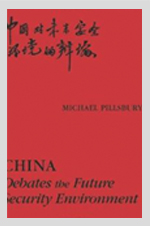
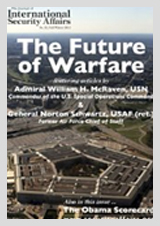
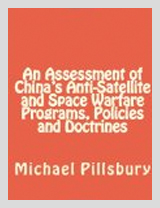
Get inCONTACT
Please direct press and
media inquiries to Vanessa
at Javelin for quickest reply.
To invite Dr. Pillsbury
as a speaker, click here.
PRESS CONTACT:
Vanessa Oblinger
(202) 997-1289
vanessa@javelindc.com

